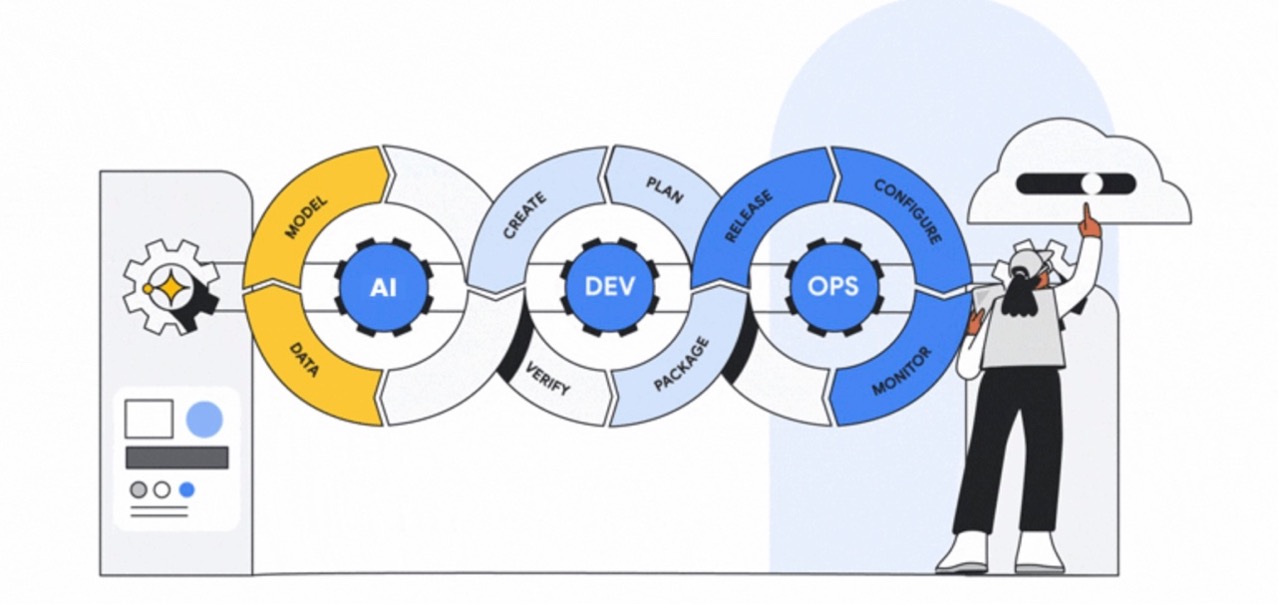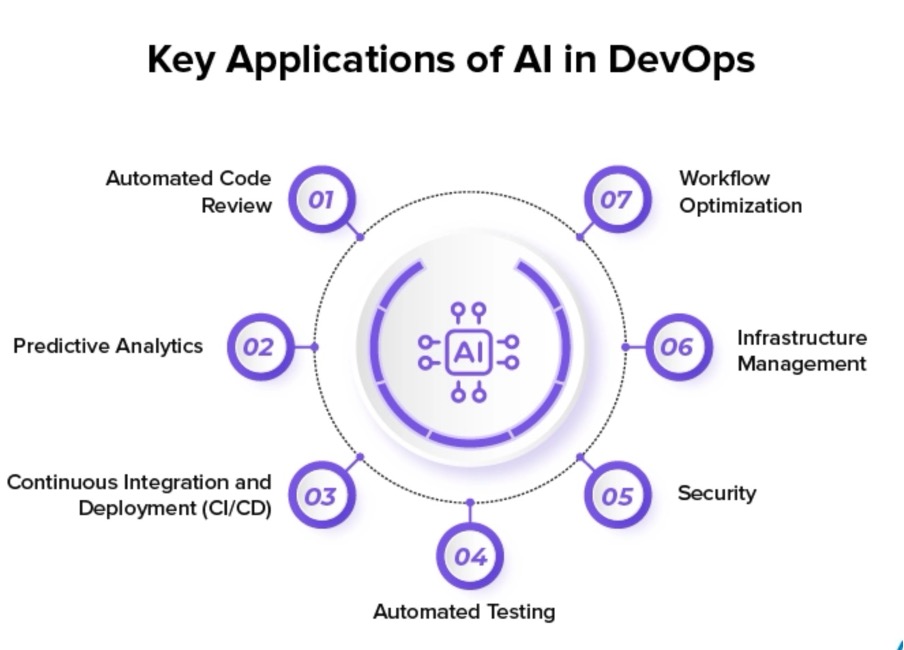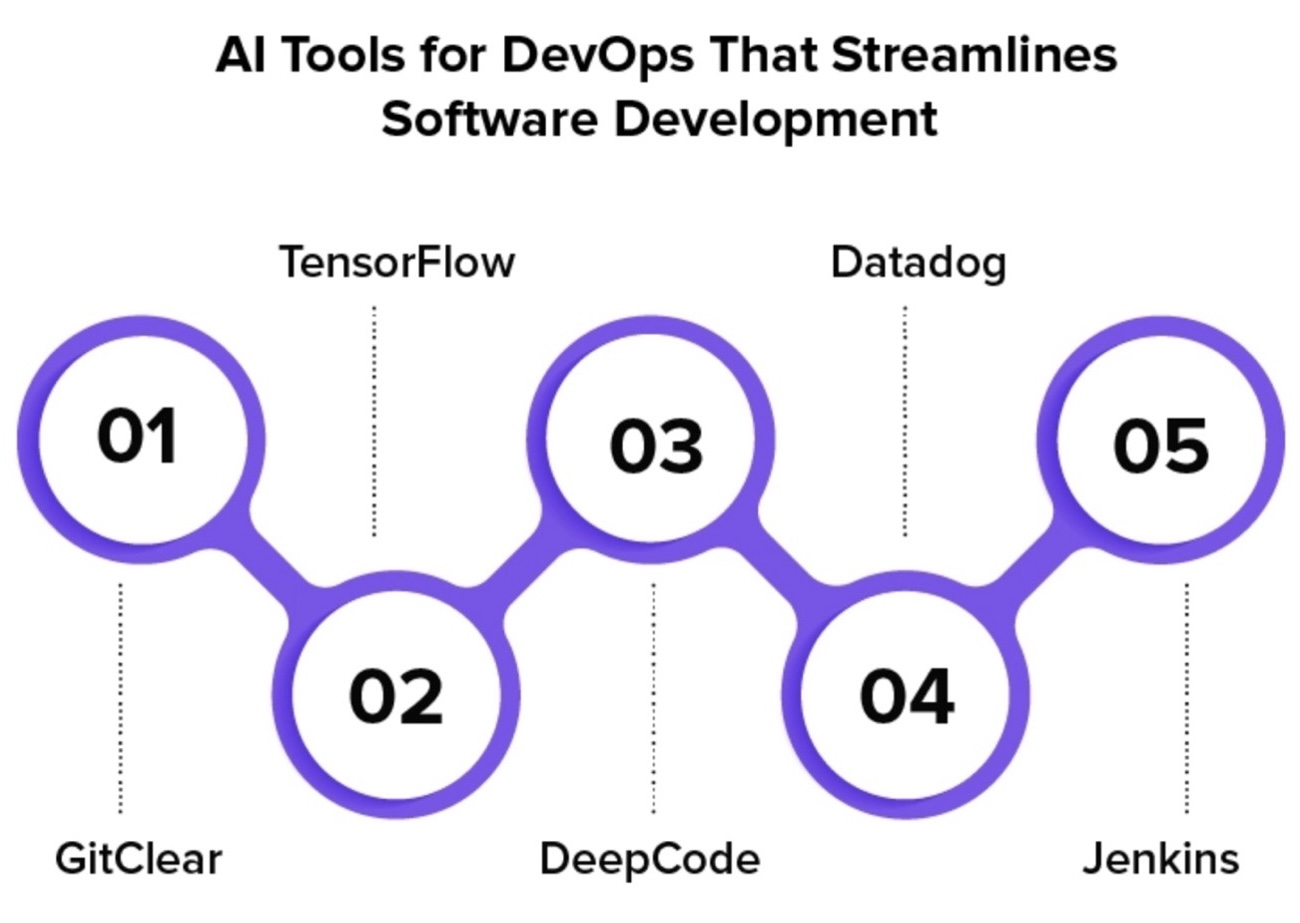Using AI for DevOps & Operational Efficiency
By: Abinas Sahoo | RIEPL
What is AI?
- Artificial Intelligence (AI) refers to the development of computer systems that perform tasks in a manner that simulates human intelligence.
- AI is quickly becoming incorporated within many processes across a range of industries due to its ability to automate tasks, reduce errors, and make fast, intelligent decisions based on data analysis.
What is DevOps?
- DevOps is a software development approach that emphasizes collaboration and communication between development and operations teams.
- DevOps aims to shorten the development cycle, increase deployment frequency, and deliver products faster and with higher quality.
Analysing the Role of AI in DevOps
Through automation and delegation, AI can help you take DevOps to a new level

- If DevOps — integrating development with operations — upended the world of software development, then the introduction of AI (artificial intelligence) represents a further significant shift.
- DevOps involves increasing communication and scaling processes, but most of all it’s about speeding up the pace of deployment. And the fastest way to speed anything up is to automate it.
- That’s where AI represents a significant advance in the progress of DevOps. AI is, in effect, intelligent automation.
- According to a Forbes report, AI is transforming DevOps by enabling developers to write higher-quality code and automating many manual tasks.
- A recent report from Google Cloud’s DevOps Research and Assessment (DORA) that analyses the data collected from 36,000 technology professionals worldwide, reveals that 30% of respondents find AI useful in tasks such as analysing logs and identifying bugs.
- This points out the growing importance of AI in enhancing efficiency and effectiveness in DevOps practices.
Types of AI used in DevOps
There are several types of AI used in DevOps, including:
- Machine learning
- Natural language processing
- Computer vision
- Chatbots and virtual assistants
How can a DevOps team take advantage of Artificial Intelligence?
AI has several applications in DevOps, transforming the way software is developed, tested, and deployed. Among the important applications are:

Using AI for CI/CD
- Incorporating AI for DevOps serves as a potent accelerator, boosting speed and efficiency within workflows. By using AI in DevOps to automate and enhance CI/CD procedures, software update delivery becomes more efficient, and the need for manual intervention decreases.
- This automation guarantees that the software stays up to date with high-quality requirements while also speeding up the release of new features.
Automated Code Review
- AI for DevOps transforms the software development process, enhancing it through automated code review.
- These kinds of AI-powered tools meticulously scrutinize code, identifying errors, security vulnerabilities, and deviations from coding standards.
Predictive Analytics
- DevOps and AI-driven predictive analytics revolutionize development processes by leveraging historical data.
- These AI systems anticipate potential issues and bottlenecks, allowing teams to mitigate risks proactively. By identifying patterns and trends, teams can make informed decisions and optimize workflows for greater efficiency.
Automated Testing
- Automated testing is critical in DevOps and artificial intelligence. AI can automate every step of the testing process, including creating test cases, running them, and interpreting the outcomes.
- This automation hugely reduces the time and effort needed for testing and increases test coverage and accuracy.
Security
- Security is a critical aspect of the AI-driven DevOps environment. AI plays a vital role in improving security by locating and addressing potential code, infrastructure, and configuration vulnerabilities.
- By leveraging sophisticated algorithms, AI can examine enormous volumes of data and identify patterns that point to potential security risks.
Infrastructure Management
- Security is a critical aspect of the AI-driven DevOps environment. AI plays a vital role in improving security by locating and addressing potential code, infrastructure, and configuration vulnerabilities.
- By leveraging sophisticated algorithms, AI can examine enormous volumes of data and identify patterns that point to potential security risks.
Top-Rated AI Tools for DevOps That Streamlines Software Development
AI tools for DevOps are revolutionizing how a particular software solution is being developed and deployed for public use. Let’s examine some of the popular AI tools utilized for DevOps processes.

- GitClear helps teams enhance communication and code review procedures by using AI to evaluate code repositories and provide insights into developer productivity and code quality.
- It also provides tools for tracking the health of codebases over time and identifying problems with code maintainability.
- Furthermore, GitClear offers smooth integration into current development workflows by integrating well-known version control systems like Git.
TensorFlow
- TensorFlow is an open-source AI library developed by Google that can be used for various AI and machine learning tasks, including natural language processing, image recognition, and predictive analytics.
- DevOps teams can use TensorFlow to create unique AI models that meet their requirements. Additionally, TensorFlow provides pre-trained models and high-level APIs that facilitate the rapid integration of AI capabilities into applications by DevOps teams without requiring specialized machine learning knowledge.
DeepCode
- DeepCode’s AI-driven analysis is revolutionizing the use of AI in DevOps by assisting teams in detecting possible security flaws and vulnerabilities in their code. By taking a proactive stance, issues can be identified early and mitigated, improving the overall security and quality of the code.
- DeepCode easily fits into DevOps processes by integrating with well-known code repositories like GitHub and GitLab, guaranteeing that code quality and security are prioritized throughout the development process.
Datadog
- Datadog’s AI-powered monitoring and analytics tools enhance the synergy between DevOps and AI. These tools enable DevOps teams to monitor performance data, identify problems, and optimize infrastructure use with unprecedented efficiency.
- Datadog uses AI to deliver proactive alarms and real-time insights, allowing teams to solve possible issues before they impact the development process.
Jenkins
- Jenkins is pivotal in converging DevOps and AI because it provides an adaptable framework for plugin-based AI integration.
- These AI plugins improve Jenkins’ capabilities by streamlining CI/CD pipelines, cutting build times, and increasing overall workflow efficiency.
- By utilizing AI within Jenkins, DevOps teams may expedite the delivery of high-quality software, automate tedious operations, and streamline processes.
Future of AI in DevOps: Redefining Software Development
- AI and DevOps have many similarities and could revolutionize software development, deployment, and management.
- The future of AI in DevOps is bright, as AI-powered automation will continue to improve productivity and decrease errors by streamlining processes.
- Predictive analytics will make proactive problem-solving and predicting problems before they arise possible.
- DevOps will transform into AIOps, where AI will drive innovation and continuous improvement by automating, analysing, and improving processes.

Abinas Sahoo | RIEPL
August 09, 2024

